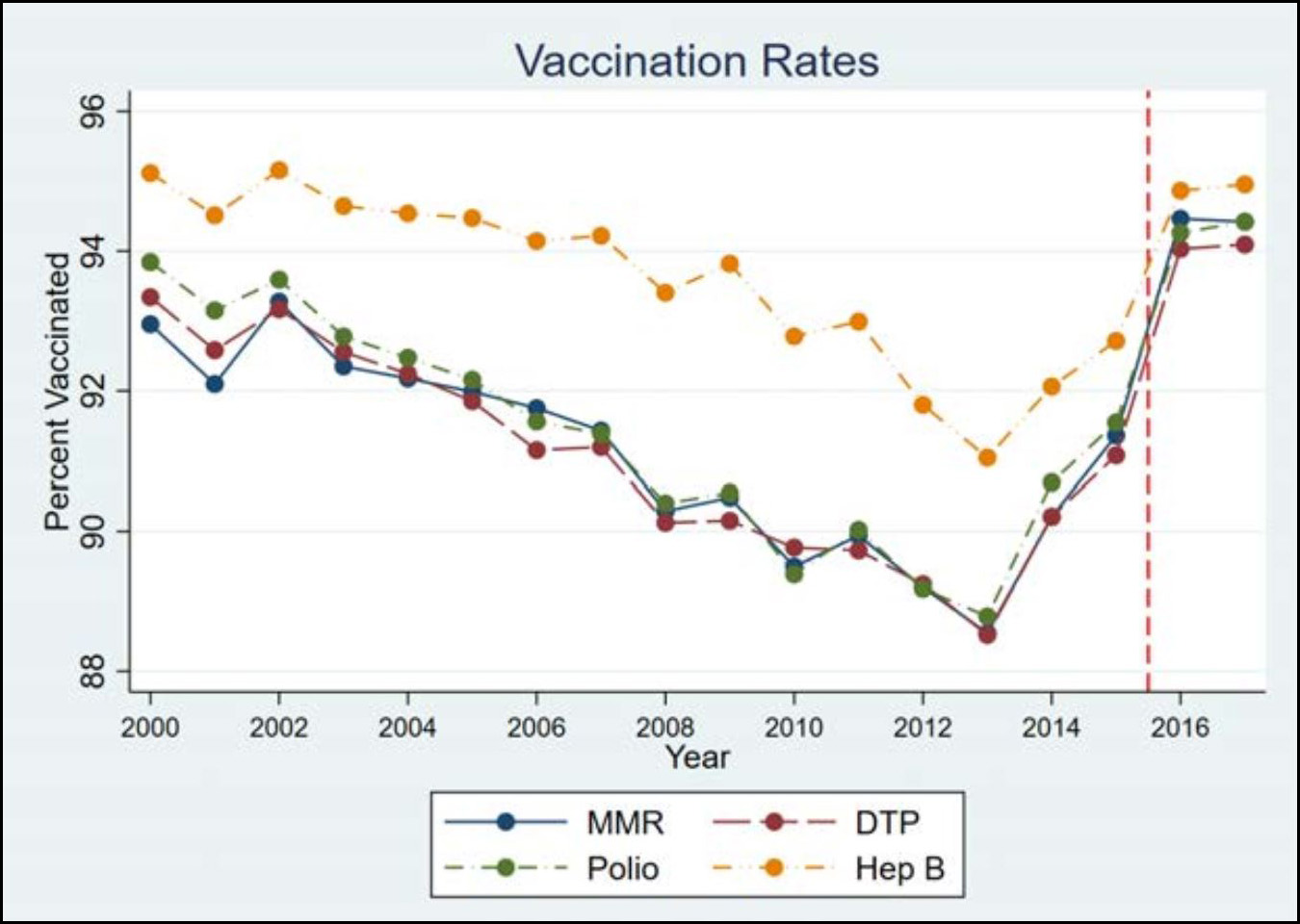In a new paper, a team of researchers asks whether stricter state rules about exemptions for vaccinations leads to higher vaccination rates. Their test bed is California, which passed a law in 2016 that made it much harder to get a nonmedical exemption for vaccinations.
Their basic conclusion is simple: nonmedical exemptions did indeed plummet, but most anti-vax parents were able to find doctors to give them a medical exemption instead. In the end, the exemption rate dropped by only one percentage point.
Interesting. But check out this chart, which is presented without comment:

Vaccination rates went up in 2016, but only by a little bit. Why? Because in 2014 and 2015 vaccination rates skyrocketed. By the time the law had passed, vaccination rates had already recovered two-thirds of their losses since 2000, and the trendline suggests that vaccination rates might have made up the rest of their losses in 2016 even without the law. (But the law seems to have helped: by 2017 vaccination rates had surpassed their previous high point.)
So what happened in 2013 that killed off the anti-vax trend? Whatever it was, that seems like the thing we should be studying.
UPDATE: Reader LR provides the likely answer:
AB2109 was enacted in 2013 and led to the rise in rates you commented about in your post. AB2109 required people to get signoff from an MD/DO that they had been advised of the risks of not vaccinating. It made it requisite to at least go see a doctor before not vaccinated.
….Washington State enacted a similar policy a few years earlier, and we knew from watching them that there would be a significant gain the first year or two but that it would plateau. Colorado also did the same. So when measles started spreading in 2014/15, and vax rates were not above the threshold to prevent outbreaks from taking hold and spreading, we got rid of non-medical exemptions altogether (SB277). And now that we’ve seen a few doctors undermine community immunity through unjustified exemptions, we are pushing for a new law to ensure proper oversight over medical exemptions (SB276).
So merely forcing people to see a doctor leads to a rise in vaccinations, probably due partly to laziness and partly to the advice the doctor is certain to give. Banning nonmedical exemptions improved things further, and regulating medical exemptions will probably improve things even more.

















